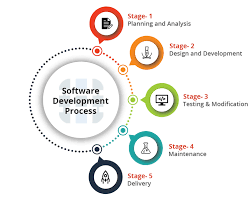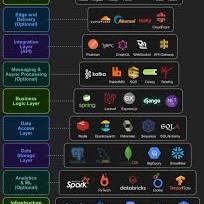AI in Business: Revolutionizing Modern Enterprises
AI in Business: Transforming the Future
The integration of Artificial Intelligence (AI) into business operations is revolutionizing industries across the globe. From automating routine tasks to providing deep insights through data analysis, AI is reshaping how businesses operate and compete.
The Role of AI in Modern Business
AI technologies, such as machine learning, natural language processing, and computer vision, are enabling businesses to enhance efficiency and improve decision-making. By leveraging AI, companies can:
- Automate Repetitive Tasks: AI-powered automation tools can handle mundane tasks like data entry and customer service inquiries, freeing up human resources for more strategic activities.
- Enhance Customer Experiences: Chatbots and virtual assistants provide 24/7 customer support, offering personalized interactions that improve customer satisfaction.
- Gain Insights from Data: Advanced analytics powered by AI help businesses analyze large volumes of data to uncover patterns and trends that inform strategic decisions.
Benefits of AI Adoption in Business
The adoption of AI brings numerous benefits to businesses willing to embrace it:
- Increased Efficiency: Automation reduces the time and effort required for manual processes, leading to faster turnaround times and increased productivity.
- Cost Savings: By automating tasks and optimizing operations, businesses can significantly reduce operational costs.
- Improved Accuracy: AI systems minimize human errors by consistently performing tasks with high precision.
Challenges in Implementing AI
Despite its advantages, integrating AI into business processes comes with challenges. Companies must address issues such as:
- Lack of Expertise: Implementing AI requires skilled professionals who understand both technology and business needs.
- Data Privacy Concerns: Businesses must ensure that their use of AI complies with data protection regulations to safeguard customer information.
- Cultural Resistance: Employees may resist changes brought by automation due to fear of job displacement or unfamiliarity with new technologies.
The Future of AI in Business
The future looks promising for businesses that embrace AI. As technology continues to evolve, we can expect even more sophisticated applications that will further transform industries. Companies that invest in developing their AI capabilities today are likely to gain a competitive edge tomorrow.
The key is not just adopting AI but integrating it strategically into business models. By doing so, organizations can harness its full potential to drive innovation and growth while navigating the challenges effectively.
The journey towards an AI-driven business landscape is underway—and it promises a future where technology empowers companies like never before.
Unlocking Business Potential: 8 Ways AI Revolutionizes Operations and Growth
- Increased efficiency through automation of routine tasks
- Enhanced customer experiences with personalized interactions
- Improved decision-making with data-driven insights from AI analytics
- Cost savings by reducing operational expenses through automation
- Minimized human errors with consistent and precise AI performance
- Faster turnaround times for processes due to AI optimization
- Scalability in operations as AI systems can handle increasing workloads efficiently
- Innovative solutions and products developed faster with AI technology
Challenges of AI in Business: Job Displacement, Privacy Risks, and High Initial Costs
Increased efficiency through automation of routine tasks
AI in business significantly boosts efficiency by automating routine tasks, allowing employees to focus on more strategic and creative activities. By utilizing AI-powered tools, companies can streamline operations such as data entry, scheduling, and customer service inquiries. This automation not only reduces the time and effort required for these repetitive tasks but also minimizes human error, ensuring consistent and accurate results. As a result, businesses experience increased productivity and can allocate resources more effectively, ultimately leading to improved performance and competitiveness in the market.
Enhanced customer experiences with personalized interactions
AI in business significantly enhances customer experiences by providing personalized interactions that cater to individual preferences and needs. Through the use of machine learning algorithms and data analytics, businesses can analyze customer behavior and tailor their offerings accordingly. This personalization extends to various touchpoints, such as recommending products based on past purchases or customizing marketing messages to resonate with specific audiences. Additionally, AI-powered chatbots and virtual assistants offer instant, round-the-clock support, addressing customer inquiries with precision and efficiency. By delivering these tailored experiences, businesses not only improve customer satisfaction but also foster loyalty and long-term relationships.
Improved decision-making with data-driven insights from AI analytics
AI in business significantly enhances decision-making by providing data-driven insights through advanced analytics. By processing vast amounts of data quickly and accurately, AI systems can identify patterns, trends, and correlations that might be overlooked by human analysts. This capability allows businesses to make informed decisions based on real-time information, leading to more strategic planning and better outcomes. Whether predicting market trends, optimizing supply chains, or personalizing customer experiences, AI-driven insights empower companies to act with confidence and precision, ultimately driving growth and competitive advantage.
Cost savings by reducing operational expenses through automation
AI in business significantly contributes to cost savings by reducing operational expenses through automation. By automating repetitive and time-consuming tasks, companies can streamline their processes, minimizing the need for extensive manual labor. This not only speeds up operations but also reduces the likelihood of human errors, which can be costly to rectify. Automation allows businesses to reallocate resources more efficiently, focusing human talent on strategic initiatives rather than routine activities. As a result, companies can lower labor costs and improve overall productivity, leading to substantial financial savings and a stronger bottom line.
Minimized human errors with consistent and precise AI performance
AI in business significantly reduces human errors by offering consistent and precise performance. Unlike humans, AI systems are not prone to fatigue or distraction, which often lead to mistakes. By automating tasks that require accuracy and attention to detail, AI ensures that processes are carried out with a high level of precision every time. This reliability is particularly valuable in areas such as data analysis, financial transactions, and quality control, where even minor errors can have substantial consequences. As a result, businesses can maintain higher standards of quality and efficiency, ultimately leading to improved outcomes and customer satisfaction.
Faster turnaround times for processes due to AI optimization
AI optimization significantly enhances business operations by streamlining processes and reducing the time required to complete tasks. Through intelligent automation and advanced algorithms, AI can analyze data, identify inefficiencies, and implement solutions more quickly than traditional methods. This leads to faster turnaround times for various processes, such as order processing, customer service responses, and supply chain management. By minimizing delays and accelerating workflows, businesses can improve productivity, meet customer demands more effectively, and gain a competitive advantage in their respective markets. As a result, AI-driven optimization not only boosts operational efficiency but also contributes to overall business growth.
Scalability in operations as AI systems can handle increasing workloads efficiently
AI in business significantly enhances scalability in operations by efficiently managing increasing workloads. As businesses grow, the demand on their systems and processes intensifies. AI systems are designed to adapt to these changes seamlessly, processing vast amounts of data and executing tasks at a speed and accuracy beyond human capability. This ability to scale effortlessly means businesses can expand their operations without a proportional increase in resources or costs. By automating routine processes and optimizing workflow, AI allows companies to maintain high performance levels even as they scale up, ensuring consistent service quality and operational efficiency.
Innovative solutions and products developed faster with AI technology
AI technology accelerates the development of innovative solutions and products by streamlining research and development processes. With AI’s ability to rapidly analyze vast amounts of data, businesses can identify market trends and consumer preferences more efficiently, allowing them to tailor their offerings to meet emerging demands. Additionally, AI-driven simulations and modeling enable companies to test and refine product designs quickly, reducing the time from concept to market. This agility not only fosters creativity but also ensures that businesses remain competitive by continuously introducing cutting-edge products that resonate with customers’ evolving needs.
Potential job displacement
The rise of AI automation in business presents a significant concern regarding potential job displacement. As companies increasingly adopt AI technologies to streamline operations and improve efficiency, certain job roles traditionally performed by humans may become obsolete. This shift can lead to workforce reductions, particularly in sectors where routine and repetitive tasks are prevalent. While AI can enhance productivity and reduce costs, it also poses challenges for employees whose skills may no longer be in demand. This transition necessitates a focus on reskilling and upskilling the workforce to prepare for new opportunities created by technological advancements, ensuring that the benefits of AI are shared broadly across society.
Data privacy concerns
The integration of AI systems in business operations often involves processing vast amounts of sensitive data, which raises significant privacy and security concerns. As AI algorithms analyze customer information, financial records, and proprietary business data, the risk of data breaches and unauthorized access increases. Companies must navigate complex regulatory environments to ensure compliance with data protection laws, such as GDPR or CCPA. Additionally, the potential for misuse of personal data by AI systems can lead to ethical dilemmas and damage to consumer trust. To mitigate these risks, businesses need to implement robust security measures and maintain transparency about how they collect, store, and use data.
Initial high implementation costs
Implementing AI technologies in business operations often involves substantial initial costs, which can be a significant barrier for many companies. This includes expenses related to purchasing advanced software and hardware, hiring skilled professionals to manage and maintain the systems, and training existing staff to work alongside new technologies. Additionally, businesses may need to invest in upgrading their IT infrastructure to support AI applications effectively. These upfront investments can be daunting, particularly for small and medium-sized enterprises with limited budgets. However, while the initial financial outlay is considerable, many organizations view it as a long-term investment that has the potential to yield significant returns through increased efficiency and competitiveness.










